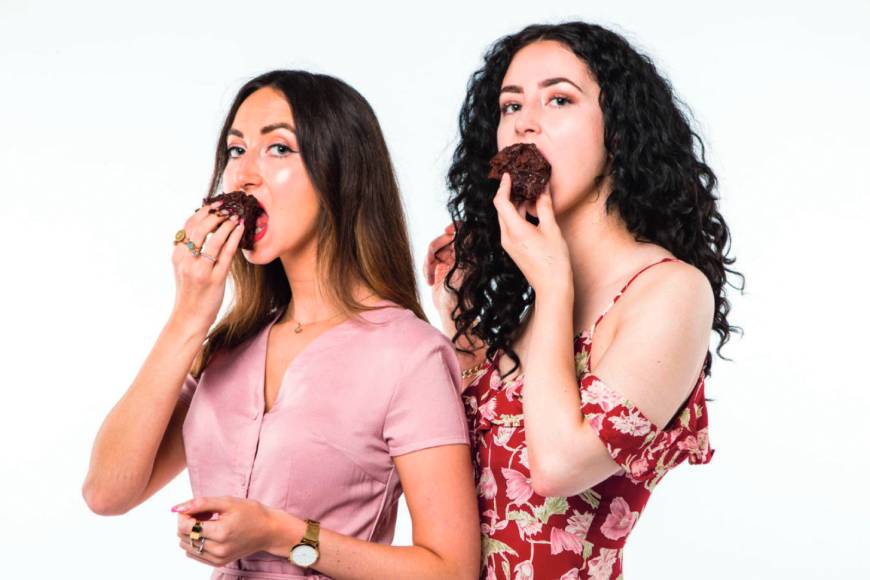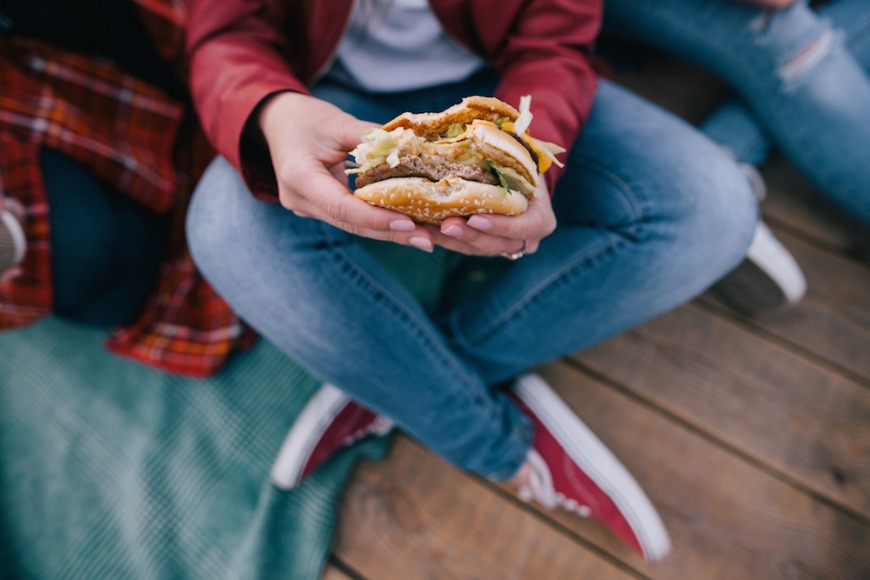Meet The Women On A Mission To Stop You Fearing Carbs, Dairy And Sugar
We talk to Eve Simmons and Laura Dennison, authors of a new anti-diet book that’s calling time on restrictive food fads.
25 February 2019

All Credits: PA
You know that feeling. You’ve just tucked into a cheeseburger and fries, washed it down with a milkshake and indulged in a sticky dessert – and you enjoyed it at the time. But afterwards, you can’t help that sinking sense in the pit of your stomach that you’ve done something ‘bad’.
And in this age of restrictive diets, ‘banning’ food groups and eating clean, there’s an increasing list of foods that it’s easy to feel immense guilt over eating. Whether it’s that extra slice of cake, or a second helping of pasta at lunch, how often do you berate yourself for ‘indulging’ in something that others might deem unhealthy?

Do you feel guilty after eating certain foods? (Thinkstock/PA)
- Tags:
- british food
- diet tips
- diets














